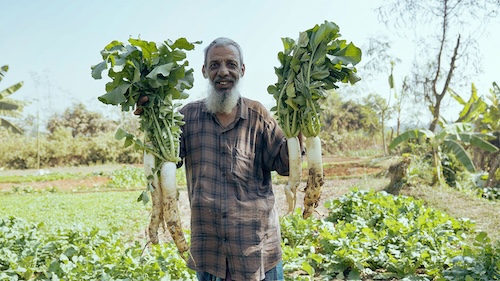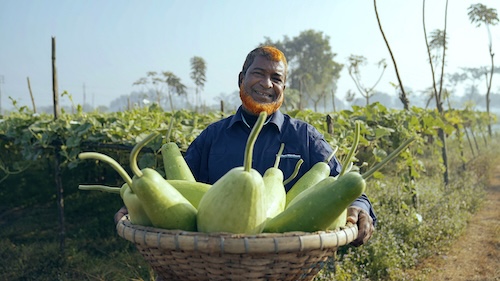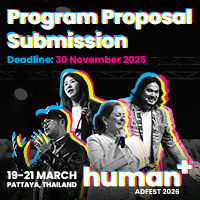A real estate company providing a life-saving service? Unthinkable, perhaps. Pop5’s creative brilliance smashed that stereotype, turning unused housing plots into farming land for landless farmers, making Shopnodhora a Bangladeshi hero (deservedly) and aiding the lives of many, many people.
Bangladesh is a small agrarian nation with 175 million people, faces a growing challenge. Rapid urbanisation is swallowing up fertile lands, while the country remains heavily dependent on food imports. Real estate companies acquire and sell these lands to buyers who see them as long-term investments, leaving them empty for decades. Simultaneously, landless farmers, struggling below the poverty line, migrate to cities in search of better opportunities, often finding themselves in precarious conditions. Shopnodhora, an eco-friendly Bangladeshi real estate company, transformed unused housing plots into productive farmlands. Landless farmers were paired with these plots and began cultivation under careful supervision. The company monitored the entire process, ensuring that the farming activities were well-supported and productive. The idea revitalised urban spaces and provided sustainable livelihoods to landless farmers.
Mohammad Akrum Hossain, chief creative officer of Pop5, took The Stable behind the scenes of his agency’s outstanding, unexpected campaign – the birth of the idea, the complexity of putting it together and the moment Plot Farming stopped being a campaign and became a collective movement for sustainable change.
The Stable: A remarkably different campaign in the real estate sector. Where did the idea come from?
Mohammad Akrum Hossain: Plot Farming started with a simple observation – real estate marketing in Bangladesh is often generic, with developers focusing on glossy visuals, standard brochures, and staged events. As Shopnodhora’s communications partner, we wanted to redefine this relationship, moving beyond selling square feet to creating shared value between the realtor and the community.
Bangladesh’s rapid urbanisation has left thousands of fertile lands lying idle under real estate ownership, while millions of farmers remain landless. That contrast became our starting point. We drew inspiration from the age-old concept of the borga chashi, sharecropping farmers who cultivate land they don’t own, sharing the harvest with the landowner.
Plot Farming reimagined this traditional system for the modern world. Unused housing plots were paired with landless farmers, transforming idle real estate into productive farmland and turning a developer’s investment into a symbol of social responsibility. It was a communications idea rooted in empathy, designed not just to promote land, but to give it purpose.
The Stable: Please provide the background to the idea? What was the campaign aim?
Mohammad Akrum Hossain: Bangladesh, though rapidly urbanising, remains deeply agricultural at its core. Yet, as cities expand, fertile lands are continuously purchased by developers and then left unutilised for years, while countless farmers lose their livelihoods and migrate to cities in search of uncertain work.
The aim of Plot Farming was to reconnect these two disconnected worlds. Shopnodhora wanted to show that real estate could be a force for good, not just a business of land acquisition. The campaign’s goal was to turn empty housing plots into farmlands, pairing landless farmers with these unused lands under fair, supervised agreements.
Inspired by the borga chashi model, the produce from each harvest was shared in a 70%-30% ratio, with the majority going to the farmers. It was a simple, humane, and sustainable solution—feeding people, empowering workers, and redefining what progress means in urban Bangladesh.
The Stable: An incredibly complex campaign to put together. How was it developed? What challenges did it have to overcome? What helped it come to fruition?
Mohammad Akrum Hossain: Plot Farming demanded collaboration on multiple levels. POP5 developed the concept and communication strategy, while Shopnodhora executed the on-ground initiative. Together, we began by identifying unused plots owned by Shopnodhora, obtaining owner permissions, and entering formal agreements with landless farmers. The farming process was supervised to ensure both quality and fairness, and once the crops were harvested, farmers received 70% of the produce, while landowners received the remaining 30%.
Challenges arose from every direction – legal, logistical, and perceptual. Convincing developers to temporarily hand over their land required trust; convincing farmers that a real estate company genuinely wanted to help required patience. But open communication, consistent supervision, and shared conviction made it possible.
After the first successful harvest, Shopnodhora went a step further, sending letters to other developers across Bangladesh, encouraging them to adopt the model. Several did. That was the moment Plot Farming stopped being a campaign and became a collective movement for sustainable change.
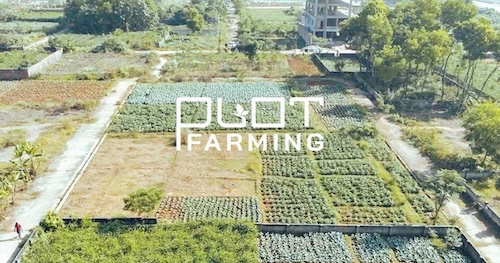
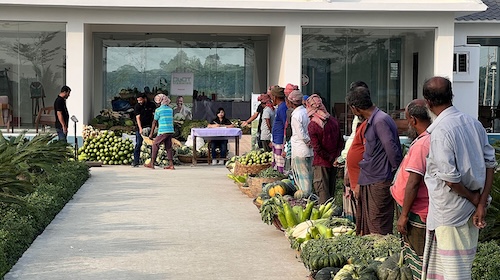
The Stable: What have been the campaign results? What is the significance of the campaign?
Mohammad Akrum Hossain: Plot Farming has had a measurable and meaningful impact. It created employment for landless farmers, restored productivity to unused lands, and sparked cross-industry collaboration as multiple developers joined the cause. It also generated widespread public and media attention, positioning the initiative as a blueprint for socially responsible real estate.
Its true significance lies in how it bridges rural and urban Bangladesh. By reintroducing the spirit of the borga chashi in a modern, structured way, it showed that progress doesn’t have to mean exclusion. Plot Farming proved that real estate and agriculture can coexist to create shared prosperity, redefining what it means to grow as a nation.
At its heart, the campaign is a reminder that unused land still holds the power to feed people, employ people, and inspire people – if only we let it.
